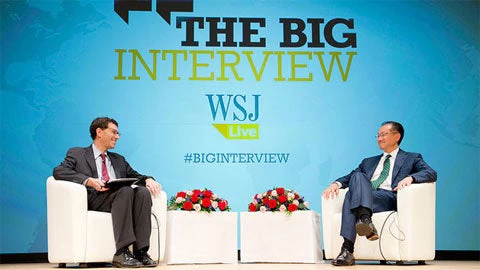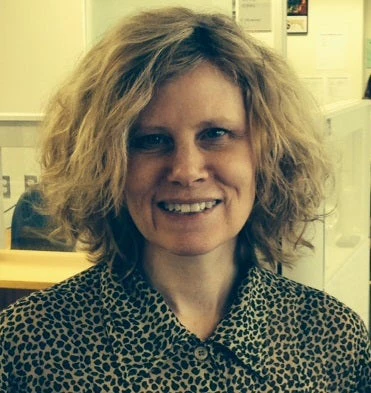Read this post in Español, Français
A few weeks ago, World Bank President Jim Yong Kim started a global conversation on what it will take to end poverty, and invited the public to send him feedback. On the opening day of the 2012 Annual Meetings in Tokyo, he shared some of his own ideas for tackling the problem during a live interview with the Wall Street Journal.
Dr. Kim sat down with Jacob Schlesinger, Tokyo bureau chief for the Wall Street Journal and Dow Jones Newswires., to discuss a variety of concerns--from the need to create jobs and find solutions to climate change, to Dr. Kim’s pledge to ramp up efforts to achieve the Bank’s longstanding goal of eliminating extreme poverty.
On the latter topic, a woman from Ghana asked, “What will happen if poverty ends? What next?”
“Absolute poverty is $1.25. It’s not like we’re going to celebrate if everyone is at $1.26,” answered Dr. Kim. “This is a really deep deep problem and we think that ending absolute poverty is an absolute must.”
He added: “If your goal is to make sure that young people and women and future generations can share in the prosperity that we’ve built today, that’s a lot of work. And we think we’re going to be busy for a very long time.”
Dr. Kim started a social media conversation in the lead-up to the Annual Meetings with the launch of a video September 17 asking, What will it take to end poverty? As of October 11, more than 12,000 “it takes” responses had flowed in from 90 countries, led by the United States, Nigeria, India, United Kingdom, and South Africa, with education, hunger, jobs, and access to water emerging as the top concerns.
The Bank has a lot of collective experience but has not optimized this resource, said Dr. Kim during the one-hour interview, part of the Journal’s “The Big Interview Series.” He said he would work on building support for changes that will streamline the Bank’s processes and focus more on results.
He added that it is important to understand mistakes, and that the Bank will start “looking at failures, and be very open about it. We’re open with our data. Now we need to understand failures,” he said.
Earlier in the day at his opening press conference, Dr. Kim said he planned to make the Bank more “nimble” and effective in its ability to deliver solutions to development problems.
“I am asking our teams, “What can we fundamentally do to change the ‘arc of history’ to end absolute poverty more quickly than is currently predicted?” Dr. Kim said. The good news is many at the institution believe it can be done, he added.
However, “we are in challenging times,” said Dr. Kim, citing high and volatile food prices, weak growth in high income countries, and slowing growth in developing countries, which had been the engine of growth in the world economy.
“Our job at the World Bank Group now is to make sure the growth over the last five years in Africa, Asia and Latin America is not destroyed by further worsening of the situation,” said Dr. Kim.
In the Wall Street Journal interview, Kim added growth should be “inclusive,” and build long-term assets such as a healthy and educated population.
“Fundamentals are critical,” he said. “Short-term measures are not ones we advise. Taking the long view is critical.”
“In the short term, we must protect developing countries without losing sight of setting the framework for future growth,” he said.
Related Links:



Join the Conversation